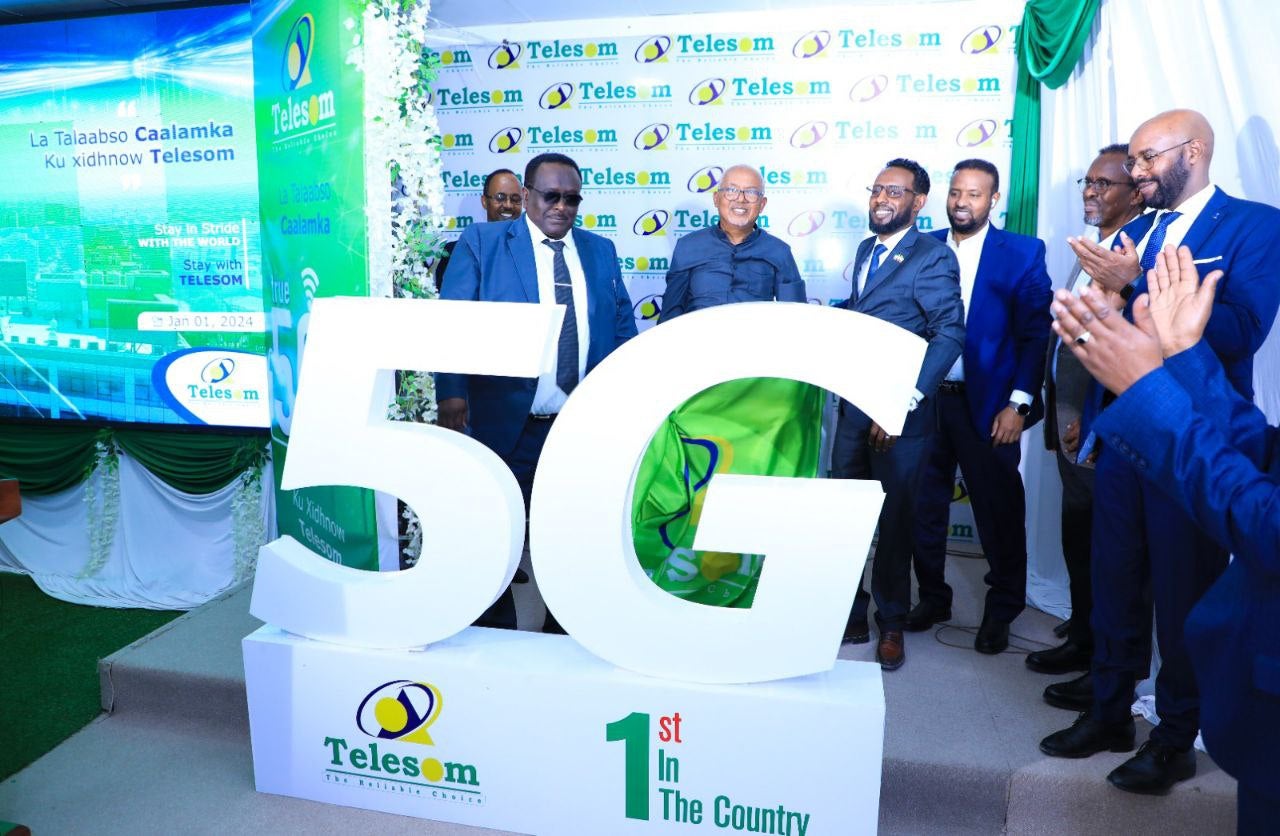Somaliland is pressing the 5G button against all odds
It's one of the first low-income countries to roll out the high-speed network

Somaliland, the breakaway region of Somalia, is making a bold leap into the future by embracing 5G technology. This rollout, amidst ongoing security concerns, poverty, hunger and a complex humanitarian situation, marks a significant step in the country’s reconstruction and development efforts.
Suggested Reading
While its quest for international recognition remains in a holding pattern, Somaliland, which had a GDP of $2.5 billion in 2021, is determined to chart its own course in the realm of technology.
Related Content
Partnering with Telesom, the first telecommunications firm to unveil a mobile money service in the country in 2009, Somaliland has rolled out 5G and Fixed Wireless Access (FWA) in its capital Hargeisa and 12 other urban towns.
In a press release, Telesom said its subscribers can now access 5G mobile data bundles on 5G-enabled phones. “This next-generation service is set to revolutionize the way people communicate, work, and experience the digital world,” the company said.
Against all odds, Somaliland joins the 5G revolution
The bold move sends a powerful message: Somaliland is not just surviving, it’s thriving, and it’s ready to compete on the global stage.
While many developed countries are still laying the groundwork for their 5G spectrums, Somaliland is one among the first low-income countries, especially from Africa, to make the jump.
Telesom chairperson Abdikarim Eid told Quartz that Somaliland’s deployment of 5G technology is a testament to the country’s resilience and its determination to build a better future. “We have launched well ahead of 36 African countries, some of which have a stronger economic potential than us,” Eid said. “All we want is our subscribers to enjoy near-instantaneous download speeds that enable boost local businesses in the education, health, transport and agriculture industries.”
At a download speed of 1,016 megabits per second, Eid hopes, Telesom’s 5G could unlock possibilities in the form of real-time applications like smart farming, remote surgery, and immersive virtual reality experiences for students. “It’s not just about the speed but also creating a new era of possibilities for our people and keeping pace with the future.”
While affordability will be a crucial factor for mass 5G mobile adoption, the larger Somalia already ranks in the top five African countries with the most affordable mobile internet, thanks to stiff competition among nine operators. The 2023 Worldwide Mobile Data Pricing index by UK-based internet affordability analysis firm Cable ranked Somalia (including Somaliland) fourth in Africa. At $0.50 per gigabyte (GB) on average, Somalia has the cheapest mobile internet in East Africa, with the cheapest mobile connectivity provider in Somalia charging $0.19 per GB.
It’s been a rough ride to 5G in Somaliland
Somaliland’s journey to adopting 5G has been far from easy. The country was mired in conflicts last year, and has been warding off the threat of militias. This has kept infrastructure rollout slow, including the deployment of high-speed internet.
Combined, Somaliland and Somalia have one of the largest coastlines in Africa, which means easy access to undersea internet cables for fiber networks. And while both countries have rolled out fiber internet connections for businesses and residences, the majority of the infrastructure is limited to highly urbanized areas. “With the rollout of Telesom’s FWA using our 5G network, we will be able to bring high speed internet to areas outside the fiber network in all the cities where our network is available,” said Eid.
However, despite Somaliland’s 95% internet penetration rate, its 5G launch is expected to incur hiccups due to the relatively unaffordable costs of 5G-enabled handsets, as was the case with its neighbor Kenya.
While analysts predict that 5G will add an additional $2.2 trillion to Africa’s economy by 2034, that depends on the speed with which the continent’s private sector converts the network into a business enabler. But as the network expands across Africa, one thing is clear: Somaliland is no longer on the sidelines of high speed internet connectivity.